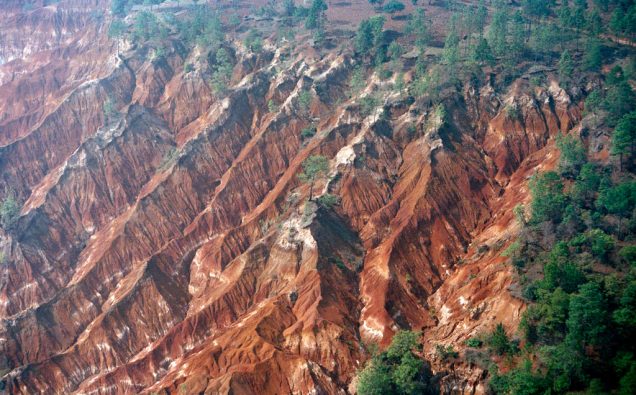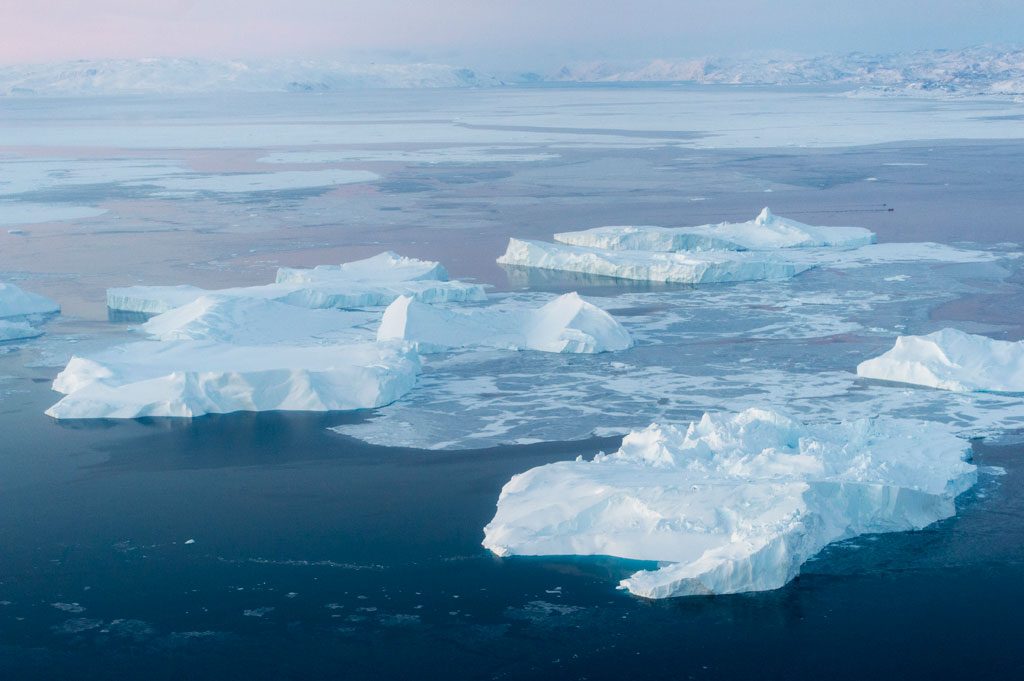
Soil erosion and deforestation shown in the mountains of Guatemala’s Quiche province. UN Photo/John Olsson
The rocketing mercury last year saw exceptionally low sea ice, unabated sea level rise and ocean heat, and continuing patterns warn the world against business as usual.
The people, both the vulnerable and those living in the apparent comfort zone, will pay a heavy cost. The refusal to heed Nature’s thundrous call to change the way we live now is likely to put a heavy premium on existence. The losses will be immediate economic – from nautral disasters to loss of livelihoods – as well as strategic long-term.
In 2016 extreme climate conditions exacerbated human suffering at several places around the world. Severe droughts hit millions of people in southern and eastern African and Central America.
Citing calamities, the United Nations said Tuesday that in the Caribbean, Hurricane Matthew – the first category 4 (CAT4) storm to make landfall since 1963 – tore a path of destruction in Haiti and inflicted significant economic losses in the region.
The United Nations World Meteorological Organization says at least three times so far this winter, the Arctic saw what can be called the Polar equivalent of a heatwave, with powerful Atlantic storms driving an influx of warm, moist air, meaning that at the height of the Arctic winter and the sea ice refreezing period, there were days which were actually close to melting point.
Consequently, the Antarctic sea ice has also been at a record low, in contrast to the trend in recent years, and some areas, including Canada and much of the United States, were unusually balmy, whilst others, including parts of the Arabian peninsula and North Africa, were unusually cold in early 2017, a report said Tuesday.
In United States alone, 11,743 warm temperature records were broken or tied in February, according to the US National Oceanic and Atmospheric Administration, said the UN agency.
“Even without a strong El Niño in 2017, we are seeing other remarkable changes across the planet that are challenging the limits of our understanding of the climate system,” said World Climate Research Programme Director David Carlson.
“We are now in truly uncharted territory.”

A view of icebergs in Ilulissat Icefjord Greenland, where the melting of ice sheets is accelerating. UN Photo/Mark Garten
In a Statement on the State of the Global Climate in 2016, the WMO says while global temperatures hit a remarkable 1.1 degree-Celsius above the pre-industrial period, global sea-level touch record highs and the planet’s sea-ice coverage dropped more than four million square kilometres below average in November – an unprecedented anomaly for that month.
“This increase in global temperature is consistent with other changes occurring in the climate system,” explained WMO Secretary-General Petteri Taalas.
“With levels of carbon dioxide in the atmosphere consistently breaking new records, the influence of human activities on the climate system has become more and more evident.”
The WMO reveals that each of the year since 2001 has seen at least 0.4 degree-Celsius above the long-term average for the 1961-1990 base period, used by the UN agency as a reference for climate change monitoring.
According the UN report, the 2016 heating was further boosted by the powerful 2015/2016 El Niño weather system, during which global sea-level also rose very strongly.
Similarly, carbon dioxide (CO2) levels in the atmosphere reached the symbolic benchmark of 400 parts per millions in 2015 – the latest year for which WMO global figures are available – and will not fall below that level for many generations to come because of the long-lasting nature of CO2, it said.
The statement says it is vital that Paris Agreement on climate change is fully implemented
In the midst of such challenges, Mr. Taalas, underlined the importance of implementation of the Paris Agreement on climate change, which also entered into force last year.
“The entry into force of the Paris Agreement on 4 November 2016 represents a historic landmark,” he said, adding: “It is vital that its implementation becomes a reality and that the Agreement guides the global community in addressing climate change by curbing greenhouse gases, fostering climate resilience and mainstreaming climate adaptation into national development policies.”
He also calls for continued investment in climate research and observations to allow scientific knowledge to keep pace with the rapid rate of climate change.
Meanwhile, another UN report warns that warming earth threatens to release huge amounts of carbon. Soaring temperatures could release massive amounts of carbon trapped in the Earth’s soil, the United Nations agricultural agencysays.
Plants and organic residues take in carbon and then sequester it into soil, creating a vast reservoir of carbon. But when soil is disturbed or degraded, trapped carbon and other greenhouse gases resulting from decay are re-released back into the atmosphere, the UN Food and Agricultural Organization said.
“This means that the Earth’s soil carbon reservoir could either release massive amounts of greenhouse gases into the atmosphere, or sequester more of them, depending on the management decisions we make going forward,” according to the report, Soil Organic Carbon: The Hidden Potential.
















